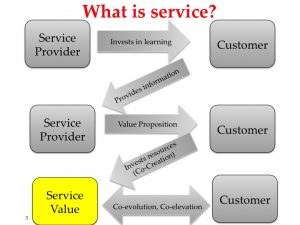We recently outlined the 8 most important attributes for entrepreneurs. Some of you have asked how the list was derived. There are three broadly-defined sets of source data, and, within these, some specific research studies. The three backbone sources are:
Austrian Economics.
This body of economic thought is focused on the individual (as opposed to classical economics, which focused on macro economics and aggregates like GDP) and how individuals make decisions. It takes a dynamic view of economic activity (as opposed to classical economics which is focused on equilibrium). There are two critical individual roles for economic dynamism: the consumer is boss, because they determine what is produced by deciding what to buy and not to buy. The decision is subjective, emotional, idiosyncratic, inconsistent and unpredictable. The consumer lives in a permanent state of dissatisfaction, believing things could be better and seeking to make decisions that improve their circumstances. The entrepreneur serves the consumer, attempting to identify solutions to this dissatisfaction, and sacrificing time, capital assets and current income to the production of that solution, having made the economic calculation that the net present value of the future revenue streams that will result is greater than the current cost of production. The entrepreneur bears the uncertainty of this process.
Service Science
Service Science is a relatively new field in social sciences that focuses on the demand for and production and delivery of services. Today, service science has a strong technology component, since so many services are delivered by or via machines and software. Like Austrian Economics, it is customer-facing, and defines service as an experience, and explores how to deliver that experience. Service science originated the concept of co-creation – that services are a joint product of the customer or receiver of the service and the provider of the service. The customer reacts to service experiences and provides feedback, which the service provider uses to further refine the service for better acceptance, and so the two parties are co-creators. There’s a good basic reference book about service science under the title of Service Thinking.
Effectuation Theory
Effectuation is a relatively new theory of entrepreneurship. One of the primary authors is Dr. Saras Sarasvathy. See her research here and a more popularized version of it here and a blog summary of it here Effectuation theory holds that the individual does not start the entrepreneurial process with a market assessment of unmet needs to attempt to meet with new solutions, but rather with a self-assessment which includes the questions, “Who Am I? What Do I Know? Who Do I Know? What Are My Resources?” From this basic foundation, the individual starts the entrepreneurial journey.
From these three sources, along with a lot of research and input from consulting services, venture capitalists and mentors of entrepreneurs, we derive the 8 attributes of entrepreneurship.
1) Empathy
Service science identifies empathy as the primary skill for the service innovator and service provider. Since the service customer’s perceived need is subjective, emotional and idiosyncratic, the service designer must “put themselves inside the customer’s head” to try to understand the service need from the customer’s subjective perspective. In the entrepreneurial process of developing new services, the entrepreneur must be able to transfer this empathetic understanding to implementers, such as those designing and writing code for apps. This is sometimes referred to as empathetic engineering.
2) Interconnection
The answers to the questions “Who Do I Know?” and “What Do I Know?” hinge on interconnection. Building a network of collaborators and customers is an act of interconnection, as is connection to knowledge in all its forms. Dr Cristina Mele of the University Of Naples has conducted research that indicates that, in the digital era, interconnection IS entrepreneurship. See a blog about Dr. Mele’s research here.
3) Adaptability
Austrian economics defines the efficiency of the entrepreneurial order as an adaptive efficiency, capable of responding to new knowledge and new market signals to co-ordinate the needs of consumers and suppliers. Service science emphasizes a process of dynamic innovation, whereby the service provider makes an offering to a service customer, who provides feedback, whether positive or negative, to which the provider adapts by changing the offering to match the content of the feedback. To maintain this adaptive process, the entrepreneur must be able to cross disciplines, communicate well with collaborators, and keep up with changing information streams from customers, all of which is summed up in the term “adaptive”. (Agility often means the same thing, but is a less specific term than “adaptive”.)
4) Time Preference
The entrepreneurial process takes time. Once an opportunity to serve customers in new ways is identified, resources must be assembled and/or rearranged to develop the new service or product. During this time, the entrepreneur typically uses savings, and sacrifices current income, in the anticipation of future profits. The entrepreneur is said to have a low time preference, which indicates a willingness to forego satisfactions and benefits today, in order to experience improved benefits in the future. The opposite attitude, high time preference, can be summarized in the phrase “I want it now” – i.e. an unwillingness to sacrifice current satisfactions. The entrepreneur lives in the future more than the present. Low time preference is associated with a long term perspective rather than a short term one, and is also associated with ethics and morality in decision making.
5) Lifelong learning
Lifelong learning is an expression of individual commitment to the economic model of entrepreneurial dynamic efficiency, and it is a social concept and educational concept that has garnered more attention as the static institutional model of educating youth for an extended career based on the learning they receive in school has shifted to the dynamic one of accumulating skills and new knowledge throughout adult life. There is an element of boundary crossing in lifelong learning, since a lifelong learner might accumulate skills in mechanical sciences (like coding) as well as social sciences (like economics), as well as crossing cultures in order to operate globally, and crossing physical/ digital barriers to deliver services digitally and physically.
6) Co-creation
Co-creation is a concept specific to Service Science, with highly developed process maps and a series of stages. (See a simplified example below.) To summarize a long literature, the process begins with the entrepreneur listening to market signals from the customer. Those signals are in the form of needs or dissatisfactions (“Things could be better if….”) which are not necessarily well-articulated but are sincerely felt. The entrepreneur invests in listening, processes the signals into a value proposition, which is offered to the customer. The response back from the customer (“Love it”, “Hate it”, “It would be even better if….”) becomes the co-creation component that the entrepreneur combines with the original idea in a new, co-evolved offering that eventually becomes the in-market service.
7) Grit
Grit is a term to denote the personality trait required to deal with continuous learning from market feedback, which often comes in the form of negative feedback, sometimes referred to as “failure”, and to keep going by processing that feedback and eventually achieving success. There was a popular book of this title, defining it as passion plus perseverance.
8) Individualism
Entrepreneurs should seek unique knowledge, make a unique benefit promise to customers, identify a niche that no-one else has identified, and generally be comfortable with being the only occupier of a commercial space. Initially they might be viewed as crazy or taking excessive risk or out on a limb. Individualism makes them comfortable with that situation. Individualism doesn’t mean they are not collaborative; in fact quite the opposite. They will assemble a team, hire vendors and co-create with customers. Individualism embraces the self-confidence to originate and create differentiation.
Center For Individualism is developing a self-assessment tool for entrepreneurs to compare their personality traits to these attributes. Stay tuned.














